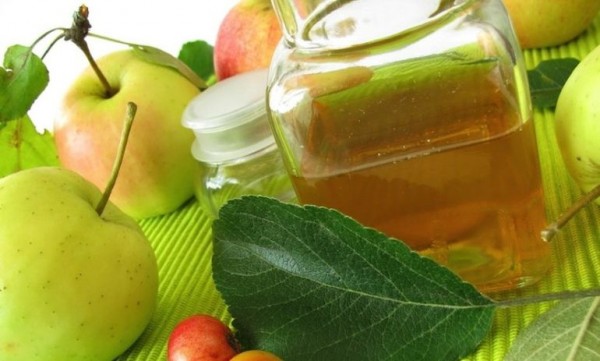Everybody now knows that probiotics are good for you. But here are twelve recently discovered benefits of probiotics that might really surprise you!
(Article republished from
GreenMedInfo.com)
1. Happiness
This surprising triple-blind study gave either probiotics or a placebo to 40 healthy people for 4 weeks. The
probiotics actually significantly reduced negative thoughts associated with a sad mood compared to placebo. The positive effect was mostly because of reduced rumination and aggressive thoughts. This is the first ever evidence that probiotics can reduce negative thinking associated with sadness (Brain Behav Immun 2 0 1 5 ; d o i : 1 0 . 1 0 1 6 / j .bbi.2015.04.003).
2. Depression
In the first ever study of probiotics and psychological conditions, people with more
depression had significantly better improvement in mood on a probiotic than on a placebo (Eur J Clin Nutr 2007;61:355-61). A second study found that a month of probiotic supplementation significantly improved depression and anger (Gut Microbes 2011;2:256-61).
3. Anxiety & Stress
The same study also found significant improvement in anxiety. An earlier study had already hinted at an antianxiety effect for probiotics. A placebo-controlled study of people with chronic fatigue syndrome found that probiotics significantly reduced their anxiety scores (Gut Pathology 2009;1:6-10). At least two studies have also found that probiotics favourably affect stress. One found that, compared to a placebo, probiotics lowered levels of the stress hormone cortisol in healthy people (Gut Microbes 2011;2:256-61).
4. ADHD & Autism
All of the uses of probiotics we've looked at so far are new and surprising. But one of the most surprising discoveries about probiotics is that they can reduce the risk of
ADHD and autism. A remarkable double-blind study gave either probiotics or a placebo to 75 pregnant women, beginning 4 weeks before their due dates and then continued giving the probiotics to the infants, or to the mothers if they were breastfeeding, for 6 months. The children were then followed for 13 years. What the study discovered was astonishing. 17.1% of the children in the placebo group developed ADHD or Asperger's. Not one child in the probiotic group did. The difference between the two groups was significant (Pediatr Res 2015;77:823-8).
5. Colic
Though some of the most exciting and surprising discoveries about probiotics have been for psychological health, there have been big surprises for physical health too. Probiotics don't just help prevent autism and ADHD in babies, they also prevent colic. A double-blind, study gave 52 infants with colic either a placebo or a probiotic for 21 days. Crying and fussing time was significantly shorter in the probiotic group who cried and fussed for 60 minutes a day versus 102 minutes a day in the placebo group. Significantly more infants responded to the probiotic than to the placebo (J Pediatr 2015;166:74-8). A second double-blind study gave a probiotic or a placebo to 589 infants for 90 days. Crying time was only 38 minutes per day in the probiotic group, but a significantly greater 71 minutes in the placebo group (JAMA Pediatr 2014;168:228-33).
6. Constipation & Diarrhoea
It is well known that probiotics treat the common antibiotic side effect of diarrhoea (Cochrane Database Syst Rev 2013;doi:10.1002/14651858.CD00
6095.pub3). Less well known is that probiotics can help diarrhoea and constipation from other causes too (Bifidobacteria & Microflora 1991;10:123-30; Bioscience Microflora 1997;16:53-8; Bioscience Microflora 1997;16:73-7; Microbial Ecology in Health & Disease 1999;11:41-6; J Nutr Food 1998;1:29- 34). Probiotics have been shown to improve both constipation (J Nutr Food 2001;4:1-6; Japanese Journal of Lactic Acid Bacteria 2007;18:31-6; Journal of Japanese Society of Nutrition & Food Science 1978;31:379- 387; La Sante 1985;66:805-10) and diarrhoea (Bifidus 1990;4:21- 4).
7. Allergies & Hay Fever
Several double-blind studies have shown that probiotics improve the symptoms of hay fever (J Investig Allergol Clin Immunol 16;86-93; Clin Experiment Allergy 2006;36:1425-35; Int Arch Allergy Immunol 2007;144:123-7). When women
supplement with probiotics while they are pregnant and give it to their babies for the first 2 years, at the age of 6, the babies are significantly less likely to suffer from eczema and have significantly improved allergies (Clin Exp Allergy 2013;43:1048-57). Probiotics may also be able to reverse allergies to milk in infants (ISME Journal 2016;10:742-50).
8. Cold & Flu
Probiotics help fight colds (Adv Ther Respir Dis 2010;4:271–8). Students under the stress of exams suffer
fewer colds and flus when taking probiotics than students taking a placebo (Br J Nutr 2015;113:426- 34). Probiotics also help you recover from respiratory infections significantly faster (Eur J Clin Nutr 2016;70:463-9).
9. Arthritis
Another surprising recent discovery about probiotics is that they may help
arthritis. 45 adults with rheumatoid arthritis added either probiotics or placebo to their arthritis medications for 60 days in a double-blind study. The ones who added the probiotics had significantly less pain. They also had significantly better improvement in the ability to walk 2 miles, reach and perform daily activities (BMC Complement Altern Med 2010;10:1).
10. Diabetes
In an unexpected study, researchers discovered that probiotics can help prevent type 1 diabetes. Compared to newborns who did not receive probiotics, newborns with the highest genetic risk of type 1 diabetes who were given probiotics in the first 27 days of life had 60% less risk of islet autoimmunity, a precursor for type 1 diabetes (JAMA Pediatr 2016;170:20-8).
11. Dental Health
A recent study found that probiotics can improve
periodontitis, gum infection that damages the tissue and bones that support the teeth (J Clin Periodontology 2016;doi: 10.1111/jcpe.12545). Research has also found that probiotics can prevent cavities. One double-blind study of children found that probiotics taken for 7 months reduced cavities by 49% compared to placebo (Caries Res 2001;35:412-420). A second study found that supplementing probiotics during the last month of pregnancy and continuing to give them to infants for the first year results in significantly fewer children with cavities at 9 years of age (Caries Res 2014;48:111–7).
12. Weight Loss
A recent study included 77 obese children. All the children were put on a calorie reduced diet and a physical activity program, but only half of them were put on a probitic/prebiotic supplement. The study lasted for 1 month. The kids on the probiotics had significantly more weight loss and decreases in body mass index and measures of body fat. They also had significant reductions in oxidative stress. Their total cholesterol and heart harmful LDL cholesterol went down significantly more than in the group that didn't get the probiotics (Benef Microbes 2015;6:775-82).
Read more at:
GreenMedInfo.com
 Parler
Parler Gab
Gab










